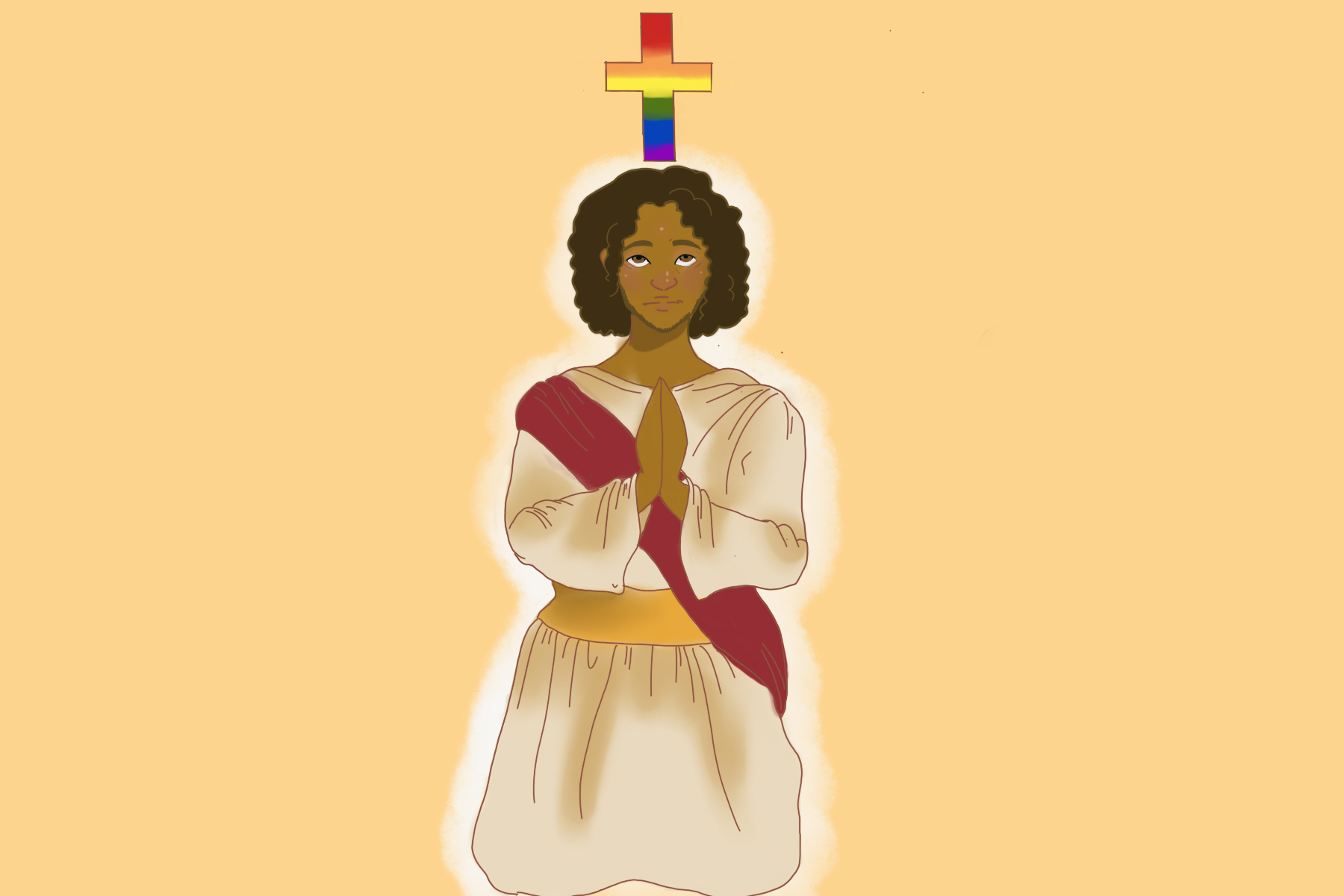No matter the artistic medium, depictions of religious figures never fail to prompt criticism from audiences. From protests meant to combat caricatures of the Prophet Muhammad to the sea of disapproval surrounding Christ’s constant portrayal as a white man, the conflict between religious authorities and media remains intense. Although not forgotten, a new Netflix series recently fanned the flames of this age-old conflict once again. “The Messiah,” created by Michael Petroni, combines both Islamic and Christian religious traditions to create a highly controversial Christ-figure.
“The Messiah” opens in Damascus, Syria, during the throes of a terrorist siege on the city. Jibril Medina wanders the area, searching for food and water in the wake of his mother’s death. As he battles for survival, Medina encounters a charismatic orator speaking on a pile of rubble. The man recites passages from the Quran with a vigor unmatched in a crowd of desperate people. Despite his confidence, the speaker’s audience only lingers for a few moments. When a sandstorm sweeps into the decimated town, Medina frantically seeks shelter in the nearby ruins. The blanket of dust buries cars, houses and, luckily, the approaching enemy forces. The speaker, however, stands unscathed in his sand-shrouded surroundings.
After the storm, this mysterious figure introduces himself as “al-Masih” and cultivates a large following from among the starving people. The pragmatic man leads them into the desert and eventually stops at the edge of Israel’s border. Now, having seized both international and domestic attention, al-Masih simply allows Israeli soldiers to take him into captivity. His followers remain at the border, starving and exposed to the elements, waiting for their newfound leader to return.
Meanwhile, thousands of miles away, a distraught CIA agent watches as al-Masih gains popularity. Eve Geller, portrayed by Michelle Monaghan, foresees the man sparking conflict in the Middle East. With her personal life in shambles, Geller channels all her energy into finding the phantom-like figure. But no matter how quickly she advances, her target still manages to elude her expert grasp. He disappears from prison, only to later re-materialize in front of both a temple and tornado. As his miraculous feats increase, his online persona begins to garner attention. Secret agents, reporters and pastors alike begin to question the figurehead’s identity. Soon, one question rests on everyone’s minds: Is this man a divine messenger or con artist extraordinaire?
From the beginning of “The Messiah,” creators clearly invoke Islamic religious tradition to drive their story forward. Although controversial, many online voices deem the very inclusion of these stories disrespectful to the religion’s adherents. For example, the author of a Change.org petition with over 5,000 signatures argues, “viewers will immediately be able to notice that it [The Messiah] is based on Islamic descriptions of the coming of Dajjal… This topic is rather sensitive and making a production like this will only have viewers forgetting the fact that this matter is not a joke.”
Indeed, people from a wide variety of faiths criticize the entertainment industry’s trivialization of religion. From creators combining “Buddhism, Taoism and Confucianism into one ‘mystical’ tradition” to the minds behind “The Messiah” mixing Islamic and Christian texts, complete accuracy in any depiction is clearly not a priority for Hollywood. Rather, these ancient traditions receive makeovers meant to attract attention, not respectfully communicate the essence of each faith.
Despite its failings in the accuracy department, “The Messiah” succeeds in prompting a conversation about religious devotion and the modern age. If a charismatic figure suddenly emerged from obscurity, how would the masses receive them? How could social media affect the rise of such a character? With misinformation wreaking more damage than ever before, could a clever leader quickly reap a global following? Throughout the story, Geller takes steps to prevent footage of al-Masih’s feats from spreading online, emphasizing the potentially disastrous results of just one viral video. The series stresses that, in the wrong hands, the technology of the modern world can fuel rather than prevent ignorance.
In the end, the show’s creator values sparking conversations over avoiding controversy. In an explanatory tweet, he states that “Yes, it’s provocative. The show is provocative, but provocative isn’t offensive.” Elsewhere, he describes “The Messiah” as “a way of talking about the world that we live in,” highlighting the underlying cultural commentary within the series. And yet, despite his insistence on the show’s conversational merit, an obstacle exists between viewers and these idealized discussions.
Although certainly provocative, “The Messiah” struggles to conquer some essential elements of good storytelling. Its multiple plotlines, while intriguing at first, become difficult to juggle as the series progresses. The characters all lack compelling introductions, leaving audiences indifferent to their fates as the convoluted twists and turns begin. If loyal viewers manage to navigate the excessive number of storylines, their conclusions will prove anticlimactic. The series, although eager to introduce multiple plotlines, fails to connect them in the end. Indeed, the conclusion leaves a few protagonists completely isolated from the series’s central events. These unconnected fates eradicate any hope for an “a-ha” moment when all the narratives intertwine in a stunning display. The actors’ performances, although decent, fail to compensate for this drama’s structural problems.
From the moment of its conception, “The Messiah” possessed the potential to generate controversy. After all, creators plant the words of two beloved religions in their figurehead’s mouth and place characters in the middle of a supposed apocalypse. Additionally, in Islamic tradition, depictions of revered figures are considered blasphemous. With these risks at the center of a series, its narrative structure, acting quality and thematic content must dazzle viewers. Its message must seem essential and possess an urgency that justifies any communicative means necessary. In other words, if a creator wants to flirt with controversy, they should probably do it well. If not, outrage swallows the substance, and noble attempts at conversation fall short.
















